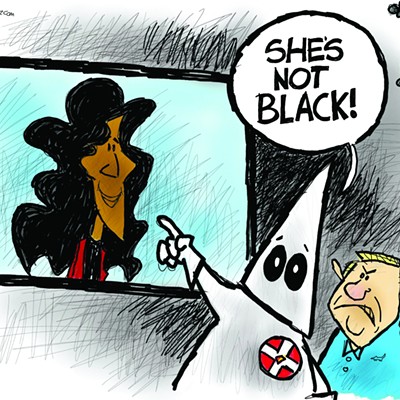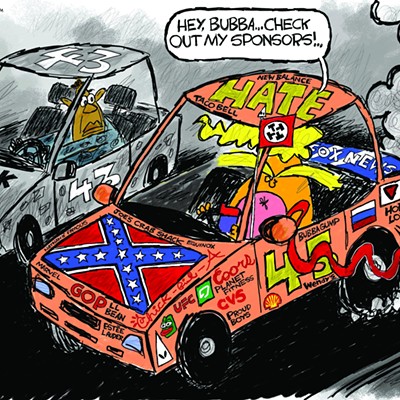The diverse crowd was made up of blacks, Latinos, whites, Asians and Native Americans. More females were in attendance than males--but the activities called for everyone to participate. The event was a four-hour seminar hosted by the UA for Black History Month and was facilitated by the director of the Racial Justice Program of the Tucson YWCA, J. Sarah Gonzales.
"From our legal system to our school districts, from our neighborhoods to our businesses, Tucson mirrors the burdens of institutional racism faced by many communities across the country," she said. "However, our community also possesses the resources needed to take responsibility, hold each other accountable and affect change. I hope in each sector of Tucson, people will renew their activism and vigilance on the institutional racism that continues to tear at the foundation of a stronger future."
Participants watched the film The House We Live In: A Look at Institutional Racism. The film put a tight lens on racism and how it affects people from the top down. One example: In 2009, according to some estimates, the average white family has eight times the wealth of the average black family.
Skin tone--whether one is darker or lighter--eye color and hair texture still carry historical meaning and assumption today. These notions affect public policy and private actions.
Institutional racism is based in United States history. If you were white, that was traditionally your key to American citizenship. Whites have historically sat on juries, held public office, gotten better jobs and retained full rewards of American citizenship. The original Social Security program locked farmers and domestics out. You could work, but it wouldn't be for much, and you'd never earn Social Security for retirement.
Then came block-busting, the practice of illegally frightening homeowners by telling them that people who are members of a particular race, religion or national origin were moving into their neighborhood. Whites would move out, accepting less than their property was worth out of fright. Unscrupulous real estate agents and developers could then sell these properties to blacks at inflated prices. This caused "white flight"--whites leaving inner city neighborhoods for predominantly white suburbs.
Thanks to block-busting, real estate became more depressed. Banks contributed by making loans to whites who were leaving and taking amenities with them; this made it harder for blacks to get loans for these overpriced properties, and led to an eroded tax base in black neighborhoods, and more segregated schools, jobs and neighborhoods for the next several decades.
Taking all of this history in, I thought about where minorities in this country are now, and why. Without a decent education or trade, you can't live the American Dream, and you certainly don't leave a legacy for your family.
Let me leave you with this thought taken from an interview that PBS did with Nancy Ditomaso, a sociologist and professor of organization management at Rutgers University. Her research focuses on racial inequality.
Ditomaso says, "One of the things that surprised me in ... interviews is that Americans do not believe in equality. They believe in equal opportunity, but they don't necessarily believe in equality. Americans believe in competition. They believe in rewards for people who try harder. It's not about making things equal, but how to make things fair. What can we do to make it possible to really believe that people have the chance to get what they deserve, to be rewarded for the contributions that they make, and have the opportunity to develop the talents?"
My two cents: We need to think of the future for our children and grandchildren and do all we can to make the playing field level. We need start at the top of corporations and other institutions, and hold people accountable to make the workplace fair, with equal opportunity for all.










